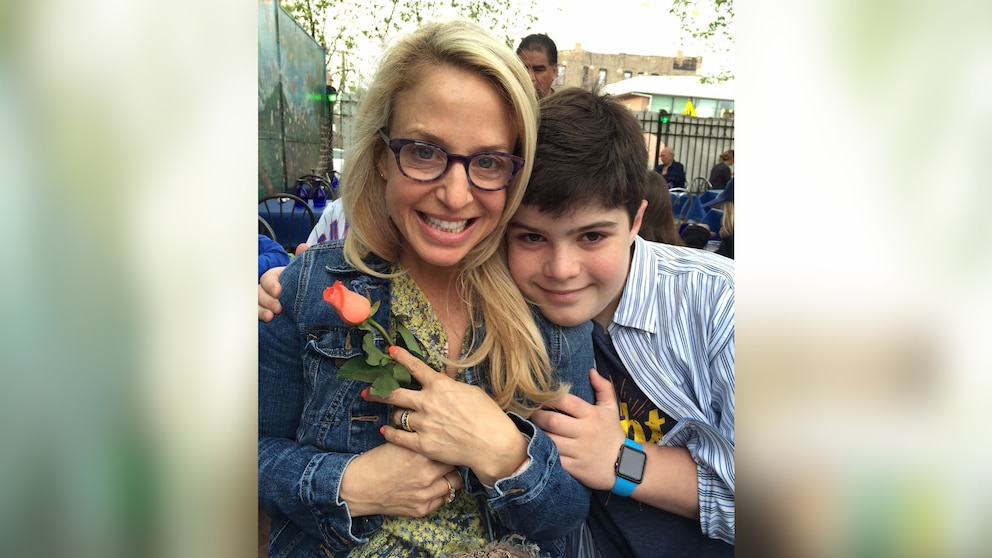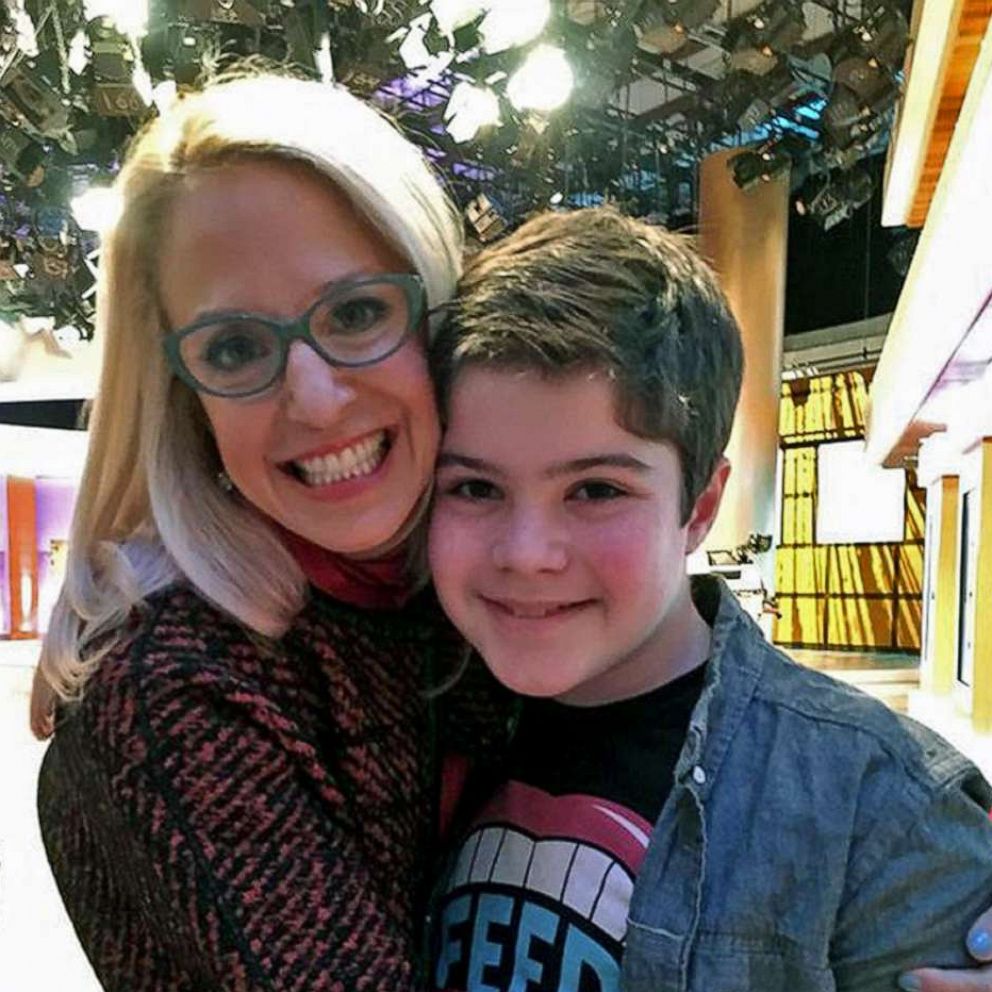Dr. Laura Berman and her husband speak out on the introduction of Sammy's Law
Relationship therapist and television host Dr. Laura Berman and her husband Sam Chapman opened up to ABC News' "Nightline" about "Sammy’s Law," a new bill named after Berman’s son who died of fentanyl poisoning after taking a fentanyl-laced pill that he purchased from someone on Snapchat, according to the couple.
The bill would require social media companies to provide parental access to data about children’s potentially dangerous social media interactions.
Berman said that advocating for Sammy’s Law helps her feel a small sense of justice in the death of her son, Sammy, who was a high school junior when he died in 2021.
"There can't be justice for our 16-year-old child being murdered. There is no justice that will make that OK," Berman told ABC News’ Becky Worley in an interview that aired Tuesday. "If we could change the laws, or we could somehow convince social media to do the right thing, then … I will feel the closest thing to justice that I probably can feel."
In 2021, the Santa Monica Police Department told ABC News in a statement, "a preliminary investigation leads us to believe prescription drug use may have been involved." The police department did not comment on the role social media allegedly played in Sammy's death.
At a press conference Tuesday in Washington, D.C., announcing the bill, Berman doubled down on the need for this type of legislation.
"I had no idea that drug dealers were reaching out to my son, accessing my son and connecting with my son through Snapchat," Berman said Tuesday. "We're doing this to save other children from Sammy's fate and to save other families from the devastation that we have to live with every day."
The bill would call for social media companies to allow third-party software to monitor children’s social media accounts and flag concerning behavior to parents.
"It would require any social media platform with children on it to allow for parent monitoring software integration from the outside, not just their own, it has to be across devices and across platforms," said Chapman.
The proposed law is in the initial stages of the legislative process and will still need to be voted on by both chambers of Congress and signed into law before enacted.
The bill was introduced to the House of Representatives by Democratic Rep. Debbie Wasserman Schultz, and co-sponsored by fellow Democratic Rep. Kim Schrier, and two Republicans: Rep. Earl “Buddy” Carter and Rep. Mariannette Miller-Meeks.

"The very technology that we have in our homes and our pockets today may be part of the problem. But with this bill, we're trying to bring these devices in as part of the solution. And I'm proud to be part of that bipartisan solution," said Wasserman Schultz at the introductory press conference.
The new legislation, if passed, would aim to bridge the gap between parents and their children’s social media use.
"This legislation would create a parental right to know about dangerous or concerning interactions children under the age of 17 may have online. Social media companies would be required to provide access to data pertaining to a parent’s child through registered third-party safety apps," read a press release from the bill’s sponsors.
In addition to advocating for change in Congress, Berman, Chapman and dozens of other parents are also part of a lawsuit against Snap Inc., the parent company of Snapchat, alleging the social media platform enables drug dealers to reach minors and young adults.
In 2021, Snapchat told "GMA" in a statement that its "deepest sympathies" are with the family and friends of Berman's son and the company is "heartbroken by his passing."
The statement also said Snapchat was "committed to working together with law enforcement in this case and in all instances where Snapchat is used for illegal purposes."
"We have no higher priority than keeping Snapchat a safe environment and we will continue to invest in protecting our community," the statement concluded.
When asked about the litigation, Jennifer Park Stout, head of global public policy at Snap, Inc., said, "My heart goes out to those families and to any family that has suffered really what is an unimaginable loss. We've deployed technologies and tools and created new products that we think will really be effective in combating this problem."
Park Stout demonstrated for Worley a feature that Snapchat has in place to combat drug sales on the platform, including a portal that redirects drug searches to informational content on drug use.
"This is a devastating crisis and it's happened really underneath our noses, and we are doing everything we can to really wrap our arms around this problem in such a meaningful way."
As part of the ongoing effort, Snapchat has partnered with Ed and Mary Ternan, who lost their son Charlie to fentanyl poisoning in 2020 after he purchased a fentanyl-laced pill on Snapchat, to educate teens about illegal pill sales through the Ternan's foundation, Song For Charlie.
Ed Ternan joined Snap Inc’s Safety Advisory Board, which according to their website, works with 15 safety-focused nonprofits "combating significant online safety risks."
They couple are also working on a congressional effort to make educational information about fake pills available to schools nationwide.
"This new problem requires new approaches. And we can't do more of the same old stuff that we've tried for decades that just hasn't worked," Ed Ternan said. "That’s the little bit of hope that keeps us going."
"Families like Song for Charlie and Ed and Mary Ternan have been critical to our understanding, and to developing and trying to get a step ahead of what the problem is," said Park Stout.
ABC News' Ashley Riegle and Tien Bischoff contributed to this story.







